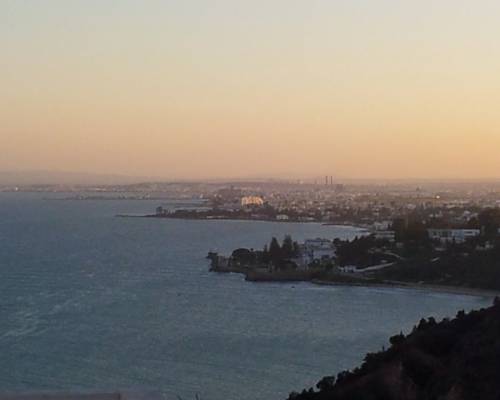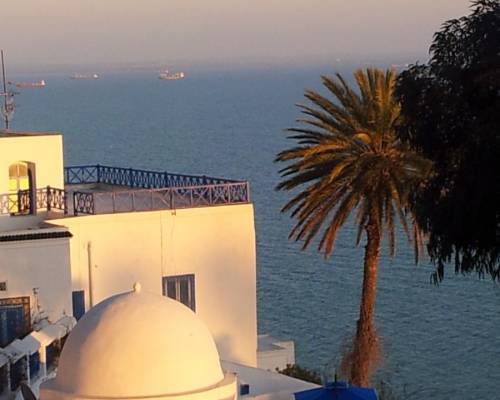Tunisia - RPS's intelligence analyst considers what the future holds
The ongoing security situation in Tunisia has somewhat flown ‘under the radar’ of Western perceptions. Whether this is a result of ‘bigger stories’ in Syria taking the headlines, or a preconception that since Tunisia possesses a democratic government and relatively strong counter-terrorist infrastructure the landscape is of lesser concern.
RPS's intelligence analyst says that Tunisia still represents a significant battleground in MENA terrorism.
In February, two civilians and two police were killed at a militant roadblock in the western province of Jendouba; a raid ten days before saw a cell seven militants killed in a major success for the security forces. And back in October 2013, a failed suicide attack close to a coastal resort hotel – the first such attack since 2002 – underscored the continuing threat to Tunisia’s industries as well as her people.
Tunisia’s participation in the Arab Spring of 2011 followed the same rough pattern as those of the other MENA nations. Zine Ben Ali, President for the past twenty-four years, was forced from power in January 2011 following a month of protests and while these were at times violent and controversial, Ben Ali did not cling on to power in the manner of Gaddafi or Assad and there was no foreign intervention required. The moderate Islamist party Ennahda won the subsequent election, with low-level instances of violence still present but not remotely comparable to the full-scale civil wars in Libya and Syria.
But this is not to claim that Tunisia was wholly unaffected. Ansar-al-Sharia Tunisia (AST) – a strict Salafist movement openly committed to securing sharia law across the country – grew from the protests, and has since developed into probably Tunisia’s largest terror threat. Proscribed as a terrorist movement following the assassinations of two high-profile secular politicians, AST has benefitted strongly from the youth dissatisfaction with the current governance and from its charity work with the poor – both groups which feel marginalised by both the Ennahda coalition and the current ‘interim government’ maintaining control until fresh elections.
Additionally, Tunisia is just one of many countries to have seen nationals travel to Syria, gain jihadist training under the guise of anti-Assad rebels, and then return to spread terror in their own cities.
There is nothing particularly unique about the terrorism in Tunisia. Smuggling links between AST and local variants of al-Qaeda are no different to relations between AQ and likeminded subsidiaries across the whole of Africa and the Middle East. The techniques used – predominantly assassinations and suicide bombings – are so commonplace as to be unremarkable. But its persistence is concerning, particularly given the dichotomy within the government between those actions taken and not taken.
The government's response to the post-Arab Spring landscape has been mixed.
Tunisia has thus far not implemented UN-supported measures, led by the US and EU, to curb the funding of terrorism – including publication of ‘terror lists’ containing names of suspected extremists and the strengthening of crackdowns on money laundering. Tunisia is by no means alone in having difficulties countering the funding of terrorists, but in a year where this global munificence has reached over one trillion dollars through global trading, zakat (mandated charity to followers of Islam) and illegal activity, their commitment to crushing the fundamentalist menace may be questioned.
Tunisia’s geographical location just above the Islamic Maghreb – an area known to be infested with terrorists and profitable activities such as trafficking and kidnapping – additionally gives it an extra role to play.
Conversely, the Tunisian government clearly understands that terrorism is a growing threat to the state. It conducts joint operations with Algeria against known individuals and organisations (resulting in the arrest of the Ansar-al-Sharia ‘number two’, Abou Ettounsi, and eleven further members last month). Despite financial constraints, the security and defence budget for 2014 has received extensions, and the French government has indicated to assist in an increase of capability.
The Tunisian government is also considering the creating of further specialist intelligence agencies. It is clear then that there is intent within Tunisia to tackle the regional terrorist problem, and that the capability to do this is being expanded.
What remains to be seen is whether the continuing political/socioeconomic tensions and the slow, secret rise of homegrown militants will be enough to override the counter-terrorism efforts of the state that has arguably made the most progress since the Arab Spring.
RPS would like to acknowledge the use of the following for information sourced within this article with thanks:
“Seven militants, policeman killed in Tunisia raid” by T Amara, Reuters, 2014 http://uk.reuters.com/article/2014/02/04/uk-tunisia-clash-idUKBREA130CD20140204
“Tunisia declares Ansasr-al-Sharia a terrorist group” by Anon, BBC News, 2014 http://www.bbc.co.uk/news/world-africa-23853241
“Abou Ayoub reveals jihadi plans” by J Arfaoui, AllAfrica, 2014 http://allafrica.com/stories/201403210849.html
“Tunisia, Arab Spring’s birthplace, takes on radicals” by S Lynch, USA Today, 2014 http://www.usatoday.com/story/news/world/2014/03/22/tunisia-revolution-arab-spring-radicals/5705461/
“Tunisia eliminates terror cell” by Yasm Najjar, AllAfrica, 2014 http://allafrica.com/stories/201403181734.html
“Turning the tide of Tunisia’s war on terror” by O Romdhani, Al-Arabiya, 2014 http://english.alarabiya.net/en/views/news/africa/2014/02/24/Turning-the-tide-of-Tunisia-s-war-on-terror.html
Photos: RPS Partnership March 2014 Tunis



